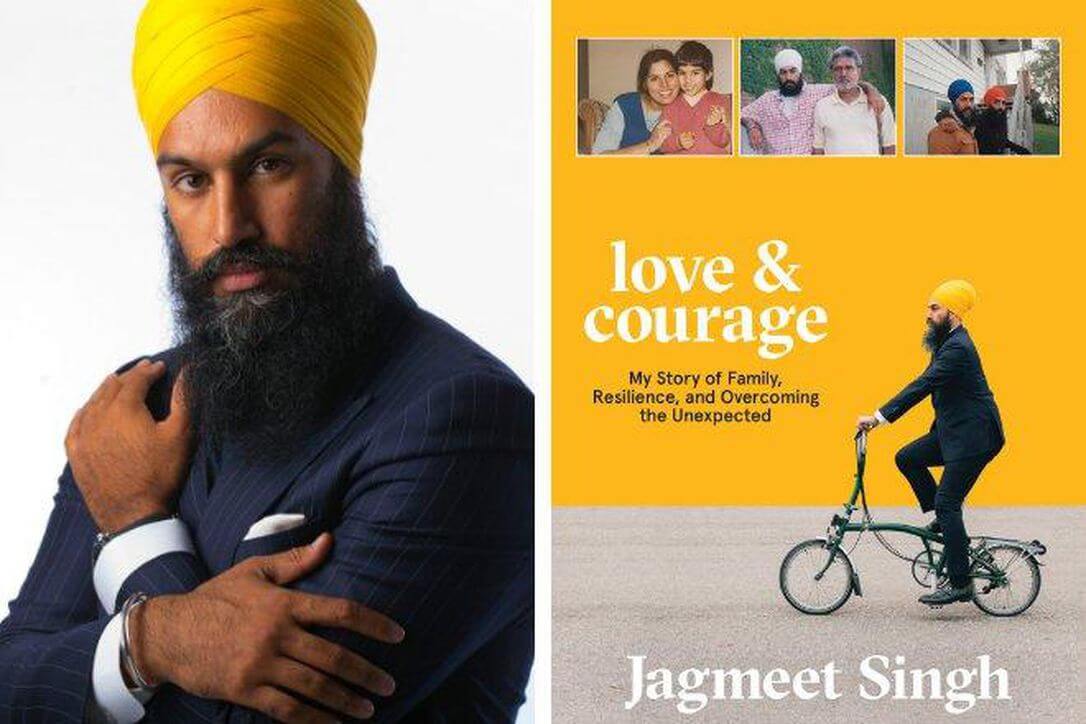I have respect and admiration for Jagmeet Singh, the leader of the New Democratic Party. I appreciate that he presented the story of his life, just as many celebrities, common folk and politicians have done in the past. However, the timing of its release taints my reaction to his book, much like other politicians who use personal stories to garner votes.
Singh’s book, “Love & Courage: My Story of Family, Resilience, and Overcoming the Unexpected,” was released last week, and describes Singh’s difficult childhood. He begins the book by retelling an incident involving a racist woman who confronted him when he first announced his decision to run for the leadership of the NDP. Singh silenced the woman with a phrase that won the hearts of many and became a slogan of his campaign; “love and courage.”
“I have experienced things that I think many Canadians have gone through — the feeling of not belonging, the feeling of being a victim, of being hurt, being marginalized.”
One of the more surprising details from the book was learning that Singh was sexually abused when he was 10. The abuser was Singh’s taekwondo coach, who invited him for extra training at his house while he was growing up in Windsor, Ontario. “As a kid, I was so embarrassed and ashamed of what happened,” he wrote. Singh, now 40, said he tried to forget the tragic event that happened to him, and could not tell his parents about until he was 25.
“I have experienced things that I think many Canadians have gone through — the feeling of not belonging, the feeling of being a victim, of being hurt, being marginalized,” Singh explained. The memoir is an important document that brings attention to the racial barriers visible minorities face in Canada. Jagmeet shares his first-hand experience with racism in great detail in the book. Being a turbaned Sikh with abundant facial hair, he not only faced hostility from white supremacists but also faced racial profiling at the hands of the police in Ontario.
Jagmeet also talks about the Air India bombing of 1985, and the 9/11 attacks in New York, which brought on more insults and racial slurs for himself and other members of the Sikh community. The explosion on the Air India Flight 182 over the Irish Sea left 329 people dead and has been widely blamed on Sikh separatists seeking revenge for ugly political events in India during 1984.
The attack came after the Indian army attacked the Golden Temple complex, the holiest Sikh shrine in Amritsar, to deal with militants accused of fortifying the place of worship. The army’s actions left many worshippers dead and destroyed historical buildings. This military invasion also enraged Sikhs across the world, with Singh’s father participating in a protest in Canada.
Singh writes in the memoir that he was denied a visa by the Indian government for seeking justice for the 1984 Sikh massacre. Likewise, he was frequently mistaken for a Muslim after 9/11 and was on the receiving end of several racial remarks. Jagmeet also mentions that when he was in grade 3, another kid called him “little nipplehead” mocking Jagmeet’s patka — the cloth worn by Sikh children to cover their hair bun. As a boy, Singh jumped at the chance to join martial arts classes. His Sikh identity attracted the attention of school bullies and he was eager to learn to defend himself.
Written in his own words, “Love & Courage” is Singh’s best opportunity to introduce himself to Canadians and share his story with the world, including the trauma he experienced.
Singh didn’t shy away from discussing personal family matters. He mentions that his father’s fight with alcoholism led to the bankruptcy of their family. It must have been difficult for Singh to share those stories and talk about those issues, particularly as the leader of a federal party.
Many people voiced their opinions on Singh’s book on social media, including Prime Minister Justin Trudeau. With the book being released just six months before the election, some people think the book is nothing more than an attempt to earn sympathy to get votes. “Love & Courage” isn’t a political policy-filled publication, it speaks to why Singh prioritizes certain issues and values as the NDP leader.
Even if it is just about sympathy votes, I’m thrilled that Singh is contributing to an open dialogue about these issues.
Every prominent person in society who comes forward like this helps contribute to a culture of better communication and less stigma. Especially for issues like sexual abuse, where a large part of the problem is the fact that victims don’t feel like they can come forward. In the era of the #MeToo movement, When people with social influence come forward and detail their experiences, it can encourage other survivors to share their own stories and face the world.
Not everything needs to be a political calculation or about winning the election, and I think Singh’s story is valuable independent of those concerns. Written in his own words, “Love & Courage” is Singh’s best opportunity to introduce himself to Canadians and share his story with the world, including the trauma he experienced.
The personal is political
A cynic might say that if Singh’s book and all the revelations in it are made up or part of some political ploy, then this act of deceit and manipulation is one of the worst. However, viewing this book as only a political move is problematic and verges on victim blaming, anyone who thinks that way should be ashamed.
While the policies of Trudeau’s Liberals and Andrew Scheer’s Conservatives disgust me, I would never accuse them of playing politics for coming forward as survivors. According to data from the SACHA Sexual Assault Centre in Hamilton, there are 460,000 sexual assaults in Canada every year. One in three women in Canada will experience some form of sexual violence in their lifetime, one in six when it comes to men, but only 5 per cent of survivors report incidents to the police. It’s courageous for anyone to tell their story, especially for those in the public eye.
People look to their leaders for strength, and by framing himself as a victim, Singh portrayed himself as both strong and vulnerable.
Surjit Singh Flora is a veteran journalist and freelance writer. He is a popular media commentator on current affairs and member of the NCM collective.




